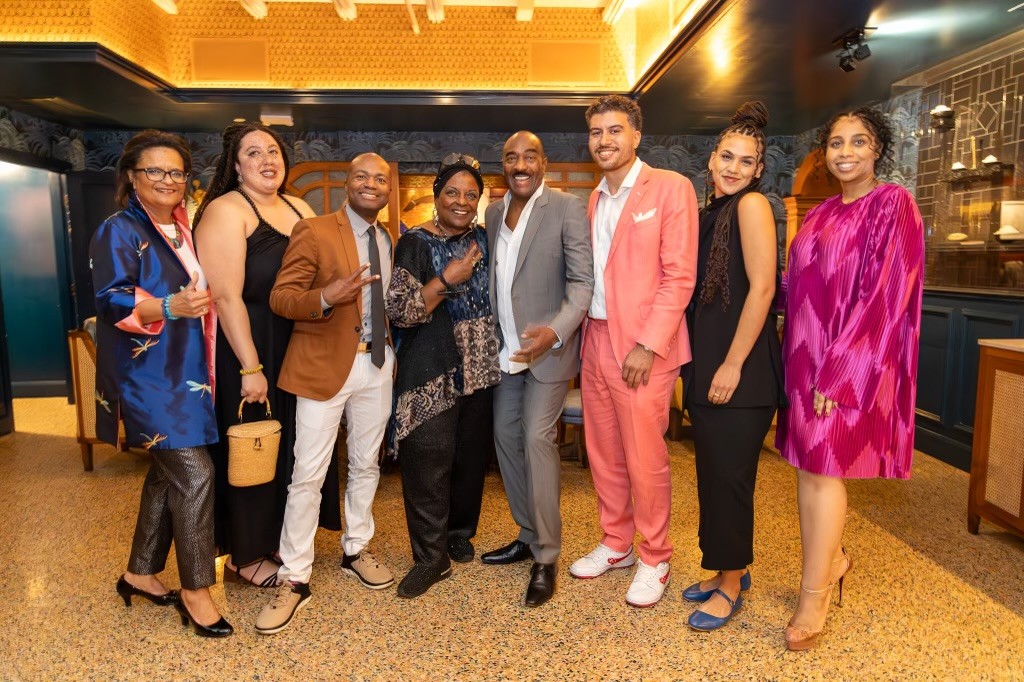Alright – so today we’ve got the honor of introducing you to Andrew Jacobson. We think you’ll enjoy our conversation, we’ve shared it below.
Andrew, so great to be with you and I think a lot of folks are going to benefit from hearing your story and lessons and wisdom. Imposter Syndrome is something that we know how words to describe, but it’s something that has held people back forever and so we’re really interested to hear about your story and how you overcame imposter syndrome.
Overcoming imposter syndrome is about getting experience and doing the work. My journey took me from working in restaurants, to selling cars, and then telecommunications. Then, I started my career in financial services at 23. After six years of working as a financial advisor, I attended law school during the pandemic. Your ability to transition proves that the accomplishments and the experience are real. Companies seek people with diverse backgrounds and experience. If they hire you, you are qualified. Make the most of the opportunity.
My path wasn’t linear; I’ve navigated different industries, facing skepticism in spaces like wealth management, where connections often trump qualifications. Similarly, in the art world, I’ve seen the value of working one’s way up, from enthusiast to advisor and art lawyer. These experiences demonstrate that success is earned through perseverance and diverse experiences, not given. There’s a song I like where the singer says, “you wasn’t with me shooting in the gym.” That sentiment really resonates with me.
Thanks, so before we move on maybe you can share a bit more about yourself?
I’m incredibly fortunate to work on many exciting projects through my business, Balmoré Art, and my law firm, the Law Office of Andrew S Jacobson. I collaborate with artists, galleries, collectors, and museums globally, but with a particular emphasis on DC and Maryland. Through the [law] firm, I focus on legal matters like contracts, intellectual property, and real estate, especially in community development.
Beyond the purely legal work, I’m engaged in various initiatives, including the Last Resort Artists Retreat in Baltimore, and run Balmoré Art as a comprehensive art advisory, consultancy, and arts education organization. We [Balmoré Art] partner with established brands, such as Theophilio, Miller’s Room, and the Mondrian Hotel, to placemake for culturally significant events. We also work to place meaningful art in private collections and educate the public about art through events.
I also work with the DC Commission on Arts and Humanities to support the creation of art fairs and educational events, for economic and cultural development. As an educator, I teach real estate, focusing on art-centered community projects, at Georgetown University and business of art at the Maryland Institute College of Art.
Beyond my professional endeavors, I maintain a creative salon-style space in Capitol Hill. Having been a lifelong creative [I used to produce music and currently write for publications like the Washington Informer], it’s important to exchange cultural insights with the community. Accordingly, I built the salon for this dialogue that I craved, and the community responded positively. My passion lies in integrating art, law, and education to make a meaningful impact.
There is so much advice out there about all the different skills and qualities folks need to develop in order to succeed in today’s highly competitive environment and often it can feel overwhelming. So, if we had to break it down to just the three that matter most, which three skills or qualities would you focus on?
Learning financial literacy early in my career was vital. My first significant job at a financial services firm, right after the Morgan Stanley SmithBarney merger, opened my eyes to banking, investing, and asset management. By 23, I had already bought my first property. I created an estate plan by 25, because I was diagnosed with a chronic illness. Laying a solid foundation for managing resources effectively is really important.
Being entrepreneurial is also very impactful. While it’s not the only way, I’ve always juggled multiple jobs or projects, pushing myself to learn and grow. This adaptability helped me gain diverse experiences and develop into a well-rounded businessperson.
Becoming a lawyer was another transformative step. Going to law school boosted my confidence and enabled me to protect interests. This decision was driven by the need to defend myself legally against corporate wrongs at a pivotal moment in my career. This highlighted the importance of understanding legal self-defense in America. The combination of these experiences has shaped me into who I am today.
Who is your ideal client or what sort of characteristics would make someone an ideal client for you?
I think my ideal client or characteristics of my ideal client would be somebody who has an interest in art, somebody who has the aptitude to learn, and the capacity to collect.
I think somebody you know on the on the artist side would be somebody who has the capacity to retain counsel, because they have a need for legal services that’s probably more ongoing and robust.
Maybe they want to negotiate brand deals or they want to negotiate contracts with their gallery or their dealer or whatever representation they have going on.
I think for collectors maybe it would be contracts — trying to lend work to institutions for presentations because they have a more significant collection that’s sought after, for being included in shows.
And for institutions it could be a number of things.
So, I I think I’m very much open.
I think it’s just about having the right vibe, finding the right project, having the right energy and making sure that people I work with have the right integrity.
That’s the best way that I could put it.
If people want to get a hold of me, you can reach me on Instagram. My Instagram is @balmore_art.
But, I’m excited. I’m ready to work.
Contact Info:
- Instagram: @Balmore_art
- Linkedin: https://www.linkedin.com/in/anjacobson






Image Credits
Courtesy of Andrew S. Jacobson




